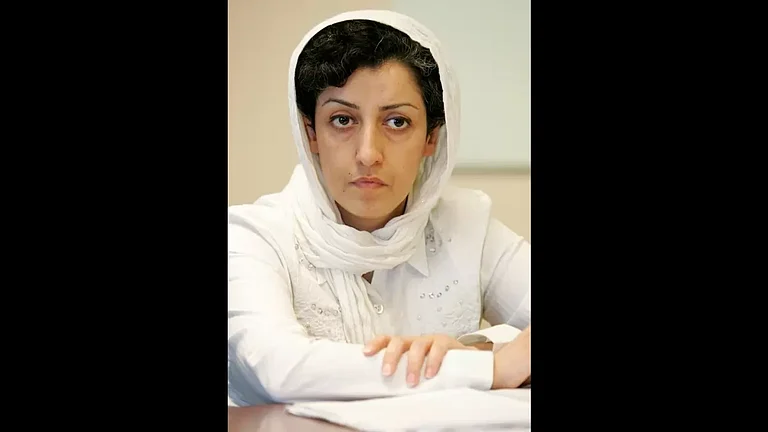There are unmistakable signs of the US preparing yet again to sacrifice principle before expediency and condone the military coup in Pakistan. Its spokesmen have urged a swift return to civilian rule and demanded Nawaz Sharif and others held by the army be kept in safety. But they have stopped well short of deploring the coup itself. If the tenor of reports in the US media is any barometer, then there's a growing willingness in Washington to lay the blame for the coup on the failings of Sharif's government and to treat the relief now being felt in Pakistan as a pseudo-democratic endorsement of Gen Pervez Musharraf's action. The US ambassador to Pakistan has even gone so far as to blame Sharif, equally with the army, for the blunder in Kargil that was the underlying cause of the coup.
Musharraf and the Pakistani foreign office have played skilfully on these themes. They have led the US to believe that a coup was necessary to check Pakistan's drift towards fundamentalist extremism and to take the hard decisions needed to stabilise the economy.
The US must realise that its references to Kashmir have emboldened Pakistan and prevented it from acting responsibly.
They have expressed a desire to reduce tension with India by pulling back troops from the border and renew the dialogue with New Delhi over Kashmir as soon as possible. One strongly suspects that Musharraf has also offered to bring pressure to bear on Afghanistan to stop sheltering Osama bin Laden. Lastly, it's unlikely that he will not have offered fuller and more effective cooperation in checking the outflow of narcotics from Afghanistan through Pakistan to Europe and the US.
The cautious US welcome to these overtures has raised New Delhi's hackles. It's unlikely the US will use its influence to block the imf and other multilateral aid which sustains Pakistan. But the $2.4-billion World Bank assistance to India is on hold. The US has urged India to resume the Lahore process with the very people who sabotaged it and to restart talks on Kashmir. But it hasn't said a word about India's reasonable precondition that Pakistan stop instigating terrorism in Kashmir. Nor has it publicly noted Musharraf's failure to mention pullback of troops from the Line of Control-a step that would deprive the terrorists of covering fire as they cross over-despite an agreement to that effect between the Directors-General of Military Operations of the two countries. So, India can't be blamed for fearing that the US' penchant for dealing with dictators has reasserted itself and the famous "tilt" towards Pakistan is returning.
India has good reason to be wary. The coup has revived the remnants of the forward policy school of foreign policy in Washington, whose members still believe that Afghanistan will one day be tamed sufficiently to open the fabled road to Central Asia, and that Pakistan will play a key role in realising this. There's also bound to be pressure on the administration from Pakistan's many supporters in the Pentagon and on Capitol Hill to resume weapons sales to it in the wake of the Congressional legislation. But it will do well not to carry its caution and distrust too far, for these will prevent it from taking advantage of the opportunity to change the direction of Indo-US ties that Kargil, and the events that led up to the US' forthright stand on Pakistan's incursion, have opened up.
No matter what visions the forward policy school might conjure up for the future, the US' immediate concerns are more pressing and these are concerns that India fully shares. The bottomline: any government in Pakistan is preferable to no government. That was where Pakistan was headed. After Kargil, the civilian government lost its legitimacy as it was widely, though wrongly, believed to have betrayed Pakistan. The army was split between senior leaders who knew the truth, that they had been whipped, and the middle-rung officers, who were seething over not having been given the credit they deserved for their 'victory' over India. The jehadis, who hadn't fired a shot, were heroes.
Almost half a million children study even now in Deen-i-Madaris in Pakistan, readying themselves to become future soldiers of Islam. As a result of this drift, sectarian violence against non-Sunni Muslims scaled new heights. Jehadis killed 50 Shias in the fortnight before the coup. Add to this Pakistan's imminent bankruptcy and a messed-up economy and it becomes clear that Pakistan was (and remains) a hairsbreadth away from chaos.
A military regime could slow down this drift. Even before the coup, there was evidence that Sharif was worried by the domestic fallout of the extremism and was seeking US help to tackle it. That he sent none other than the isi chief, Gen Ziauddin, to discuss it shows that the army and the isi shared his concern. But Sharif didn't have the power to check the Jehadis and stop the indoctrination of children in the Deen-i-Madaris. The army might just have.
India should welcome the US attempt to put its finger in the Pakistani dyke. This will put India in a better position to caution the US against being manipulated yet again into a tacit collusion with Pakistan. Since the US itself has no desire to act so, it's a feasible foreign policy goal. The US can avoid this trap if it delinks its support to the junta, and future economic aid, from the Kashmir issue and avoids steps that will impinge upon Pakistan's ties with India. The Brownback-Gillman legislation notwithstanding, it must not allow the sale of arms until democracy has been restored. The US has gone some way towards making the first mistake. It must be warned against making the second. India's bitter experience of the past half-century shows that every tiny US reference to Kashmir and every acquisition of arms end up hardening Pakistan's unrealistic stance on Kashmir. That stance, and not the so-called failings of its democratic governments, is what lie at the bottom of Pakistan's progressive failure to emerge as a viable modern state.























